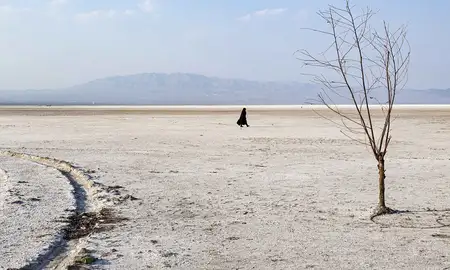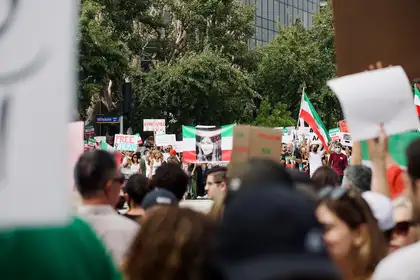
Collective action is needed to bring an end to the violence and pave the way for a just and free Iran.
The Islamic Republic of Iran has carried out over 528 executions since 2022. According to France's Together Against the Death Penalty (ECPM), the number of executions in Iran has risen 75 per cent since the death of Jina (Mahsa) Amini and the beginning of Iran’s 'Woman, Life, Freedom' revolution. In May 2023 alone, the regime has executed 89 people.
These murderous executions are based on fake trials and confessions obtained under severe psychological and physical torture during custody. They typically occur after the morning call for prayer, which has become the grim bearer of terror news in Iran.
After each execution, more anger and despair engulf Iranian society and further alienate people from the religious ideology that the regime has been trying to install in Iran over the last four decades. Despite the regime’s awareness that such crimes alienate more people, they commit these atrocities for domestic and international purposes.
The Islamic Republic’s decisions almost always signal a message to the international community, particularly the West, and in the meantime aim to achieve some legitimacy amongst their followers domestically.
In 2022, Iran was removed from the Commission on the Status of Women (CSW) for the remainder of its four-year term ending in 2026.
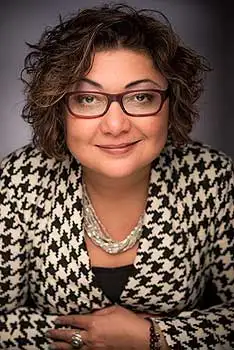
Dr Negar Partow.
These executions send a message to the West that the minor restrictions the international community has been imposing on the Islamic republic neither has any value nor has any impact on the level of violence they coerce on the society. They believe that the international community keeps a blind eye on their torture and execution campaign, if they see some flexibility from Iran in terms of its nuclear programme.
President Biden’s administration has been closing the route for the regime’s money laundering in Iraq and Israel has been targeting the arms convoys that the Islamic republic has been trying to send to Syria and Lebanon. The regime is also aware that many countries could follow suit and put the IRGC on their list of terrorist organisations soon, which will have a significant impact on limiting their ability to finance their oppression.
These executions send a message to the West that the minor restrictions the international community has been imposing on the Islamic Republic neither has any value nor has any impact on the level of violence they coerce on the society. They believe that the international community keeps a blind eye to their torture and execution campaign, if they see some flexibility from Iran in terms of its nuclear programme.
They are also promoting the idea that the West’s commitment to human rights is propaganda and that the efforts of Iranians outside of Iran are voided. All these strategic goals are to discourage Iranians inside the country to come to the streets and those outside of Iran to contact their governments and demand more pressure on Iran.
The appointment of the representative of the Islamic Republic, Ali Bahreini, as the Chair of United Nations Human Rights Commission Social Forum in November 2023, and the silence of the international community about this appointment and over the number of executions in Iran, have emboldened the regime further. A day after the three executions, Ali Hosseini Khamenei appeared on TV in a meeting with Iran’s ambassadors, where he mentioned that 'compromise' is a vital strategy in foreign policy. These comments were made public in the week that the Sultan of Oman is traveling to Iran with messages from the West. Ali Hosseini Khamenei’s speech reveals his decision in continuing the violent executions and attacks on the public inside Iran, yet taking a very cooperative face in the possible upcoming diplomatic negotiations.
Domestically, however, the situation is more complicated. The Islamic republic has put all its resources into coercing compulsory veiling. The regime closes down major malls, supermarkets and any other outlet that provide service to women who don’t wear hejab. Until the beginning of 'Woman, Life, Freedom', the morality police were patrolling streets in their cars, but now they roam streets on foot and harass women without hejab. Any car that is identified with a female driver who doesn’t wear hejab is towed away and the owner must pay a hefty fine.
Women who refuse to wear the compulsory hejab are arrested, punished, persecuted and harassed by the regime’s forces on the street, the leading clergy, the theological centres, the students of religious establishments and the politicians. Regardless of all these investments and pressure, the number of women who refuse to submit to the compulsory veiling grows each day. These executions are a strategy to hide their failure and to show to their followers that they still have the upper hand and are in control.
There are many women in the Islamic Republic’s prisons being tortured, many of whom have been long-standing survivors of the regime’s brutality. The regime, however, targets young men for execution to spread fear among men who support women in their fight for freedom. They hope that by separating men from women, they have a better chance in having some form of control. Mistakenly, they also think that if women are isolated, they can conquer them.
They also target young men to frighten mothers from the consequences of the actions of their children. The speedy trials and the hasty executions that violate the legal criminal process for the purpose of legitimacy and terrorising, is a strategy that the regime uses to crush any possibility of opposition after Iran-Iraq war. They were successful in doing this in 1989, when after the end of the Iran-Iraq war the regime executed about 30,000 political prisoners over two to three months across the country. Many were buried in mass graves. The mass executions of 1989 were never forgotten by Iranians, but it silenced Iran’s civil society until July 1999.
In June 2022, two months before the revolution begun, in one his speeches Ali Hosseini Khamenei said, "In the 1980s we were able to stand on our own feet and disappoint the enemy in the face of all incidents and the severity of their action. We can do it today. The God of the 80s is the God of this year. The God of difficult and good times is the same. Divine traditions are all in place. Let's try to set ourselves as examples of divine traditions on the way to progress."
With this speech, he announced that he will take revenge and his revenge would be in the form of torture and execution. I started writing this article in response to the three executions that the regime conducted on 19 May (yesterday at the time of writing). By the time I finished the writing of this short piece, another person was executed in Iran. Without a strong international reaction to the mass executions and brutal atrocities that the Islamic Republic are committing, they will continue and more innocent people will perish.
The international community should try to support and amplify the voices of Iranians inside and outside of Iran who advocate for human rights and equality. Governments, international organisations and individuals should hold the Islamic Republic accountable for its grave violations of human rights. Only through collective action can we hope to bring an end to this cycle of violence and pave the way for a just and free Iran.
Related news
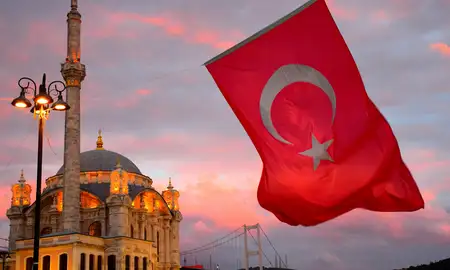
Opinion: Unity and innovation in Iranian and Afghani women’s resistance strategies
By Dr Negar Partow.
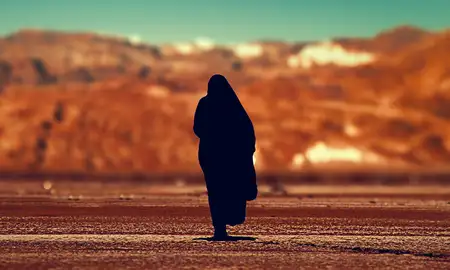
Opinion: With an Iranian Feminist Revolution on the rise, the future of political Islamism is determined
Senior Lecturer Dr Negar Partow from Massey's Centre for Defence and Security Studies offers insights into the women's movement in Iran.
